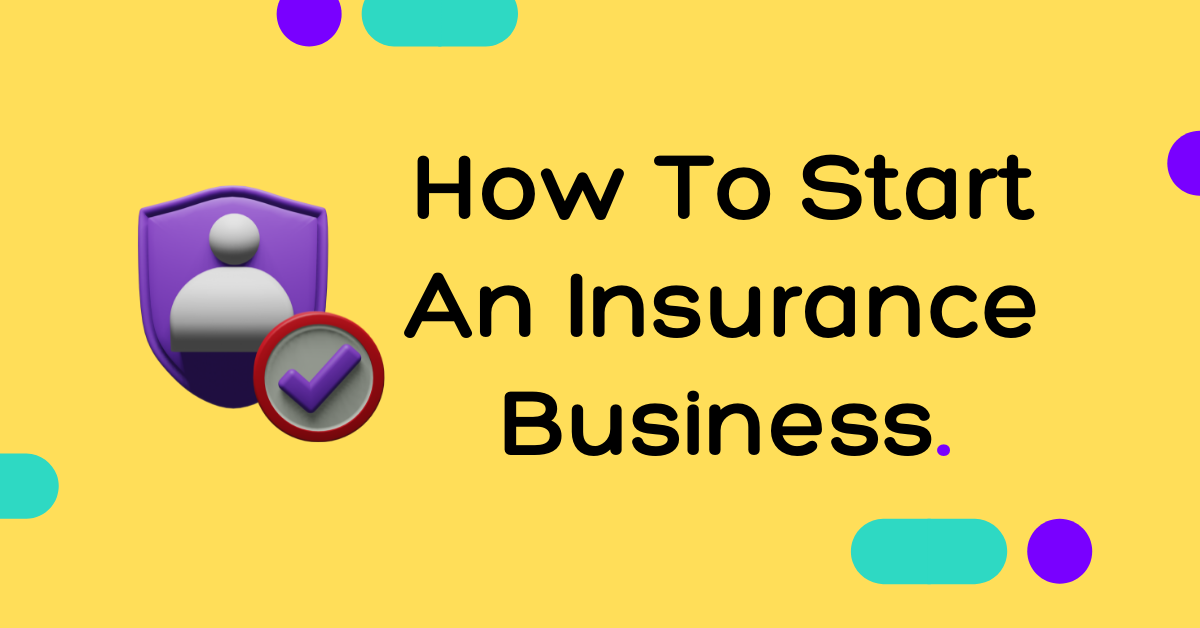Learn how to start an insurance business in this post.
If you are looking for a recession-proof business, entering the insurance industry is the right choice.
Insurance is an essential part of life for most Americans. They need insurance for their businesses, have sufficient finances to cover their family’s unforeseen health issues, and ensure their cars, among other things.
Once you have decided to start an insurance agency, all you need is to pick the top LLC formation services from the given list.
Also, follow these nine simple steps below to start a successful insurance business.
Table of Contents
How To Start An Insurance Business
Step 1: Research the Insurance Industry
To run a successful insurance business, it is essential to have up-to-date information on the products, customer intentions, and industry trends. Hence, market research is vital if you are new to the insurance industry.
In addition to market research, managerial skills, sales knowledge, and ambition to succeed will be a plus. The insurance industry is profitable and challenging at the same time, as people need your expert advice and trust you to provide safety during their most vulnerable times.
Step 2: Develop a Business Plan for Your Insurance Business
Writing a business plan is vital to running a business successfully. A business plan provides you with the road map to run the company for three to five years. It also describes your business’s financial goals and strategies to achieve those goals.
You need to describe your company, state your business goals, outline your products and services, and create a typical business plan and financial projections.
However, for planning an insurance agency business, you also need to consider the cost of training the sales staff.
Step 3: Get the License for Your Insurance Business
Starting an insurance business in the U.S requires you to complete a course of insurance education of 20-40 hours before applying for the license. It also includes 12 hours of ethics courses to pass the final exam of insurance education. These courses are available online for $300 to $400.
Step 4: Choose a Business Structure
You can start an insurance agency as a sole proprietor, a partnership business, an LLC, an S Corp, or a C Corp, depending upon the number of employees and particularly in terms of tax implications. However, the most recommended legal structure for a new startup in the U.S. is a Limited Liability Company (LLC).
Step 5: Register your Insurance Agency for Taxes ID
To register your insurance agency for tax identification, you must apply for an Employer Identification Number(EIN) from the IRS website. An EIN is also necessary to open your business bank account.
READ ALSO: How To Choose The Right SEO Agency
Step 6: Apply for Permits & Licenses for Your Insurance Agency
Every state requires its own state-specific permits and licenses for insurance agencies. It also involves business licenses, sales tax permits, and any other document/s the state requires.
You also require a state’s insurance department license to run your insurance agency in a specific state.
Step 7: Get Insurance for Your Insurance Agency
Get business insurance for your insurance agency. Insurance agencies typically require both professional liability insurance and general liability insurance. The type of insurance you select depends on the agency’s size, activities, and location.
Other relevant insurance policies required for an insurance agency include commercial auto insurance and workers’ compensation insurance.
Step 8: Create a Brand for Your Insurance Business and Market it
The brand develops the perception of your company; a strong brand defines your Unique Selling Point. Therefore, your marketing strategy must represent brand perception to create strong brand awareness.
Creating brand awareness also requires understanding your target audience. It will help them understand why to choose your company to best fulfill their needs.
Step 9: How To Keep Customers Coming Back
Your marketing strategy is key to customer retention. For example, many insurance clients react emotionally to the premium rise on policy renewal every year.
Therefore, it is essential to communicate to the customer that the premium increase is standard and applies equally to all insurance policies.
READ ALSO: How to Compare Health Insurance Policies Effectively
How To Start An Insurance Business: Frequently Asked Questions
What are the essential steps to starting an insurance business?
Here’s a simplified overview:
- Research and choose your niche: Identify a specific type of insurance (e.g., auto, home, life) with a profitable market opportunity.
- Develop a comprehensive business plan That Outlines your company’s vision, target market, marketing strategy, financial projections, and management team.
- Secure funding: Raise capital through investors, loans, or personal savings to cover initial costs and operational expenses.
- Obtain licensing and permits: Each state has specific licensing requirements for insurance companies. Consult with legal professionals to ensure compliance.
- Establish infrastructure: Set up administrative systems, technology infrastructure, and customer service channels.
- Develop and price insurance products: Create competitive insurance policies with accurate pricing based on actuarial data and regulatory guidelines.
- Build a distribution network: Partner with brokers, agents, or develop direct-to-consumer marketing strategies to reach your target audience.
- Comply with regulations: Adhere to strict reporting, financial solvency, and consumer protection regulations set by government agencies.
What are the biggest challenges in starting an insurance business?
Some major challenges include:
- High capital requirements: Initiating and maintaining operations typically require substantial financial resources.
- Complex regulatory environment: Navigating intricate licensing, compliance, and reporting requirements can be demanding.
- Risk management: Accurately assessing and managing the risks involved in different insurance products is critical for maintaining financial stability.
- Competition: Established players with a larger market share and brand recognition can be tough competitors.
- Attracting and retaining talent: Finding qualified professionals with expertise in insurance, actuarial science, and risk management can be a challenging task.
READ ALSO: What is Identity Theft Insurance?
What are some key skills and qualities needed to succeed in this field?
- Entrepreneurial spirit: Passion, perseverance, and the ability to thrive in a dynamic and competitive environment.
- Financial acumen: Strong understanding of financial modeling, risk assessment, and investment strategies.
- Leadership: Ability to build and motivate a team, navigate complex challenges, and make sound decisions.
- Regulatory knowledge: Deep understanding of insurance regulations and compliance requirements.
- Sales and marketing expertise: Skills to develop and execute effective marketing strategies to attract and retain customers.
Bottom Line
Remember, starting an insurance business is a complex undertaking requiring careful planning, significant resources, and expertise.
Consult with legal and financial professionals before making any decisions.
INTERESTING POSTS
About the Author:
Marie Beaujolie is a computer network engineer and content writer from Paris. She is passionate about technology and exploring new ways to make people’s lives easier. Marie has been working in the IT industry for many years and has a wealth of knowledge about computer security and best practices. She is a regular contributor for SecureBlitz.com, where she writes about the latest trends and news in the cyber security industry. Marie is committed to helping people stay safe online and encouraging them to take the necessary steps to protect their data.








